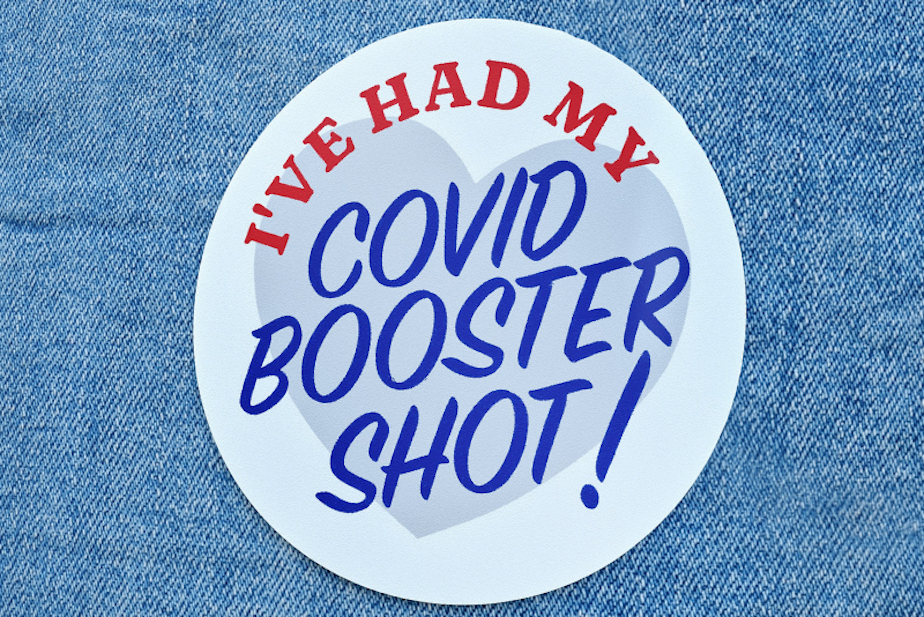Should you celebrate summer's end with a Covid booster or wait until fall?

There's an unwelcome guest lurking at that late summer barbecue, or trying to tag along on the family vacation.
According to the CDC, Covid cases are on the rise in several regions throughout the U.S. — including the Pacific Northwest.
This may be bringing up some questions for you, like, what’s this new variant we’ve been hearing about? Or, what should I be doing about getting a booster?
Dr. Seth Cohen is an infectious disease doctor, and the medical director of infection prevention at UW Medical Center. He caught up with Soundside host Libby Denkmann to answer some summertime Covid questions.
One of those questions: What's up with this new Covid variant, EG.5? According to the Centers for Disease Control, it's responsible for 17% of all new Covid-19 cases in the country.
"Right now, it's considered a variant of interest; it's not a variant of concern," Cohen said. "And so we are seeing an uptick. But we've seen that with many, many variants in the past. And so I think it's a little hard to know what to make of this one. There is no sign that it is more severe than some of the prior variants."
Sponsored
Cohen said the hope among doctors and researchers is that EG.5 will be well-covered by the new Covid booster due out this fall.
There hasn't been a dramatic rise in Covid-related hospitalizations in Washington state, but Cohen said that as we continue to get together to celebrate the summer and head back to school, it's important to continue to factor Covid precautions into those plans.
"I think for a lot of people, sometimes it feels like Covid is out of sight, out of mind. And for others, particularly many of our vulnerable patients, people who have underlying conditions or compromised immune systems, Covid is still front and center," Cohen said.
If you're planning on traveling through an airport this summer, assess your risk tolerance, Cohen suggested. Pack masks. And if you haven't gotten a booster, talk to your primary care physician about getting one.
For many, there's questions about whether to grab one now, or wait until the fall. Cohen said if you fall into a high risk group, sooner is better than later.
Sponsored
"People tend to get the most benefit from the new vaccine if it's been at least three or four months from their prior vaccine. If you get vaccines closer together, you may see a little bit of a blunting of that vaccine effect," Cohen said. "But again, if it's somebody who has a compromised immune system, you know, we'd much rather trade a little bit of blunting for getting them vaccinated sooner and protected for the coming respiratory viral season."
Listen to the full segment by clicking the play button at the top of this story.






